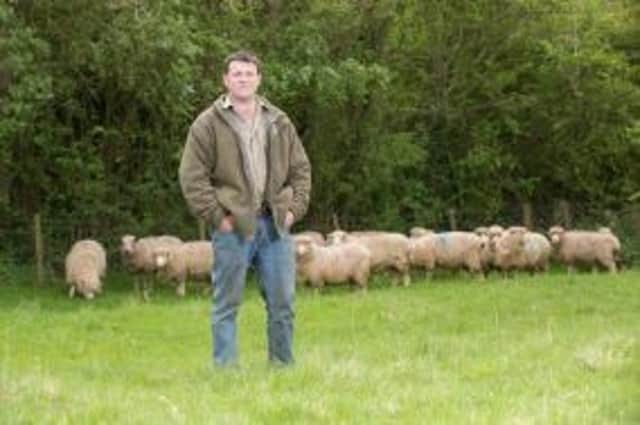Traditional breeds pay their way


The Elliotts run 200 suckler cows and lamb 1,200 ewes, supplying low-input, mainly grass-fed beef and lamb for their two Elliott’s Butchers’ shops - the family business dating back more than 100 years. Maintaining a traditional, family-run business has been key to its success.
“We try to minimise the feed we buy in,” said Tom. “We claim no Single Farm Payment on the rented ground so everything has to look after itself. We don’t carry any passengers.”
Advertisement
Advertisement
Poll Dorsets have been a favourite with the family for more than 25 years. Tom and his sister Ann were keen to get involved with the sheep when they were younger and the docile breed was ideal for them to handle.
The early lambing portion of the Dorset flock of 50 ewes bred pure are lambed in November which are run around the cattle ground.
The lambs get no creep feed and the intention is to keep ewe lambs as flock replacements so they aren’t pushed too hard.
Ewe lambs are separated from the ram lambs and all that are not kept for breeding are finished by Easter.
Advertisement
Advertisement
The early wether lambs this year were weighing 23-24kg deadweight grading R and U and 3L and 3H. The aim is not to produce too muscly or shaley a lamb but one which is easy fleshing off grass.
Both groups are lambed over an 18-21 day period with the later lambing ewes and lambs having access to buildings.
The flock is not scanned, but lambing percentages run at up to 170 and lamb mortality is good.
All the lambs are finished, either for the butchers’ shops or deadweight to Randall Parker Wales through a local collection centre. The early 2015 Berrichon cross lambs were finishing at 18-20kg deadweight and grading U.
Advertisement
Advertisement
“We run our sheep enterprise on the expectation of lambs being a pretty low price and, then hopefully, if the price is good we can make some money on them.”
The sheep give a good, consistent supply of lamb over seven months of the year for the butchers shops and for deadweight sales which helps with cash flow and produces a better average price.
Sheep numbers have been built up to include 150 Dorsets, 300 pure New Zealand Romneys which graze the poorer ground, 200 Clun Forests graze the better ground and Aberfield rams are being used to breed commercial flock replacements which make up the rest of the 1,200 ewes to minimise disease risk and save the cost of buying in sheep.
The suckler cows are also traditional breeds - South Devon and Beef Shorthorn.
Advertisement
Advertisement
The best of the pedigrees are bred pure while Saler Bulls are used on the heifers and the Simmental is used on the remainder of the cows.
All are calved away from home from the beginning of March and when the weather allows they are calved outside. The cows are fed hay and are kept in as lean a condition as possible to avoid calving difficulties.
Steer calves are sold at seven to eight months old. Heifers are either kept as replacements with some sold for breeding and the remainder finished and put through the farm shops.
The butcher’s shop in Kislingbury opened 100 years ago and Roger, the third generation of the family, took over the business 30 years ago, opening a second shop in Towcester 20 years ago, which now incorporates a delicatessen producing a huge range of foods from its own kitchen as well as from other local suppliers.
Advertisement
Advertisement
Pork and free range chicken is sourced from local suppliers. Elliotts dry cure their own bacon and make an extensive range of sausages and burgers.
The two shops employ five full time butchers as well as part time staff with the kitchen and delicatessen sides amplifying another six people full and part time.
Tom’s sister, Ann Hull with her husband Edward continues to be committed to the Dorset, running a pure bred autumn lambing flock of 150 ewes in Essex alongside suckler cows.